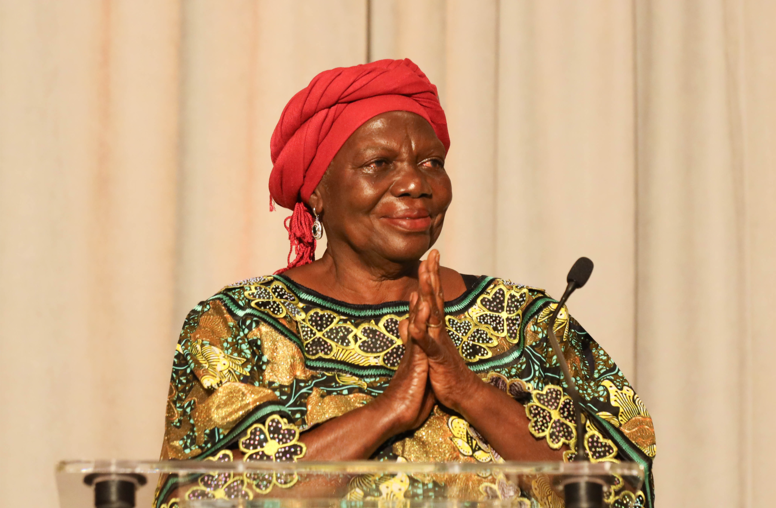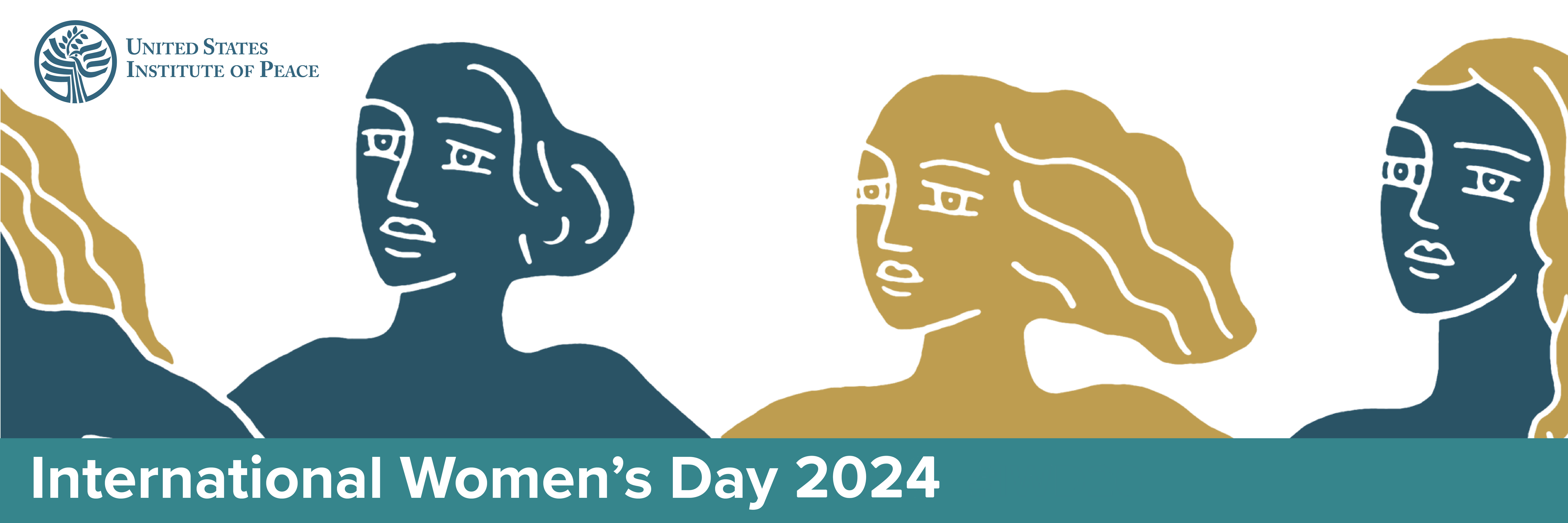Featured Resources

In Congo, Peace Means a Halt to ‘Brutal, Illegal Mining’
Pétronille Vaweka, a Congolese grandmother, has mediated local peace accords in her homeland’s wars. But now, she says, one of Africa’s longest, bloodiest conflicts can be solved only if the United States and other democracies “will wake up” to protect their own economic and security interests.

How Women on the Front Lines Forge Peace
Ahead of International Women’s Day and on the first day of Women’s History Month, USIP recognized and celebrated the awardee and finalists for the 2023 Women Building Peace Award. The conversation explored how these four fearless women from the Democratic Republic of Congo, Haiti, Kenya and Syria are making history while working for a peaceful future.

Addressing Gendered Violence in Papua New Guinea: Opportunities and Options
Each year, more than 1.5 million women and girls in Papua New Guinea experience gender-based violence tied to intercommunal conflict, political intimidation, domestic abuse, and other causes. It is, according to a 2023 Human Rights Watch report, “one of the most dangerous places to be a woman or girl.” Bleak as this may seem, it is not hopeless. USIP’s new report identifies several promising approaches for peacebuilding programming to reduce gender-based violence and effect meaningful and lasting change in Papua New Guinea.

The Latest @ USIP: Children Born of War
Unfortunately, children born as a result of conflict-related sexual violence have been overlooked in the international community’s peacebuilding agenda for a long time. Eunice Otuko Apio, a member of Uganda's Parliament and a finalist for USIP’s 2022 Women Building Peace Award , discusses why children born of war have historically been marginalized in peace processes, how resources can be used to support them and their families more effectively, and how women can contribute to peacebuilding more broadly.
The Latest @ USIP

Missing Peace Initiative: Listen to Survivors to Prevent Sexual Violence in War
For over a decade, the Missing Peace Initiative has brought together scholars, policymakers, practitioners and survivors of conflict-related sexual violence to discuss new ways to prevent this scourge of war. At the initiative’s second global symposium, USIP spoke with several experts on the progress made in the last 10 years, the importance of hearing directly from survivors and persons with disabilities, and the continued work that needs to be done to end this horrific crime.

The Latest: Gender and Violence in Papua New Guinea
In addressing violence in Papua New Guinea, most programs seek to work with survivors. However, to prevent the recurrence of violence — especially gender-based violence — it’s important to address the harmful attitudes that drive it. USIP’s Ruth Kissam and Zuabe Tinning discuss how a USIP program seeks to reorient men’s perspectives in Papua New Guinea toward championing equal participation for women in decision-making processes and repairing the damage caused by harmful and violent behaviors in their communities.

Why Women Are So Vital to Sustaining Peace and Security
On International Women’s Day, USIP spoke with senior U.S. government officials about why the security of any nation is directly tied to the status and security of its women and how, in conflict-torn countries, women’s meaningful participation in peace processes is vital to building and sustaining peace.

The Fight for Uyghur Women’s Human Rights in China
Uyghur journalist Gulchehra Hoja discusses the human rights situation for Uyghur women in the Xinjiang region of China, why authoritarian regimes feel threatened by women in particular, and how the global community can help by pressuring China to open the region to independent investigations and foreign journalists.

The Fight Against Gender-Based Violence in South Sudan
Women Building Peace Award finalist Nyachangkuoth Tai discusses ways South Sudanese women can be involved in the electoral process — such as the constitutional requirement that women make up 35 percent of parliament — so that they have an equal hand in shaping the country’s future.

Colombian Women’s Contribution to Peacebuilding
Viviana Sarmiento, a Colombian political scientist and researcher, discusses how Colombian women contributed to the design and implementation of 2016 FARC peace accords, the opportunity to bring gender-inclusive perspectives into negotiations with other armed groups, and what Colombian women can teach others around the world about women’s inclusion in peacebuilding.




